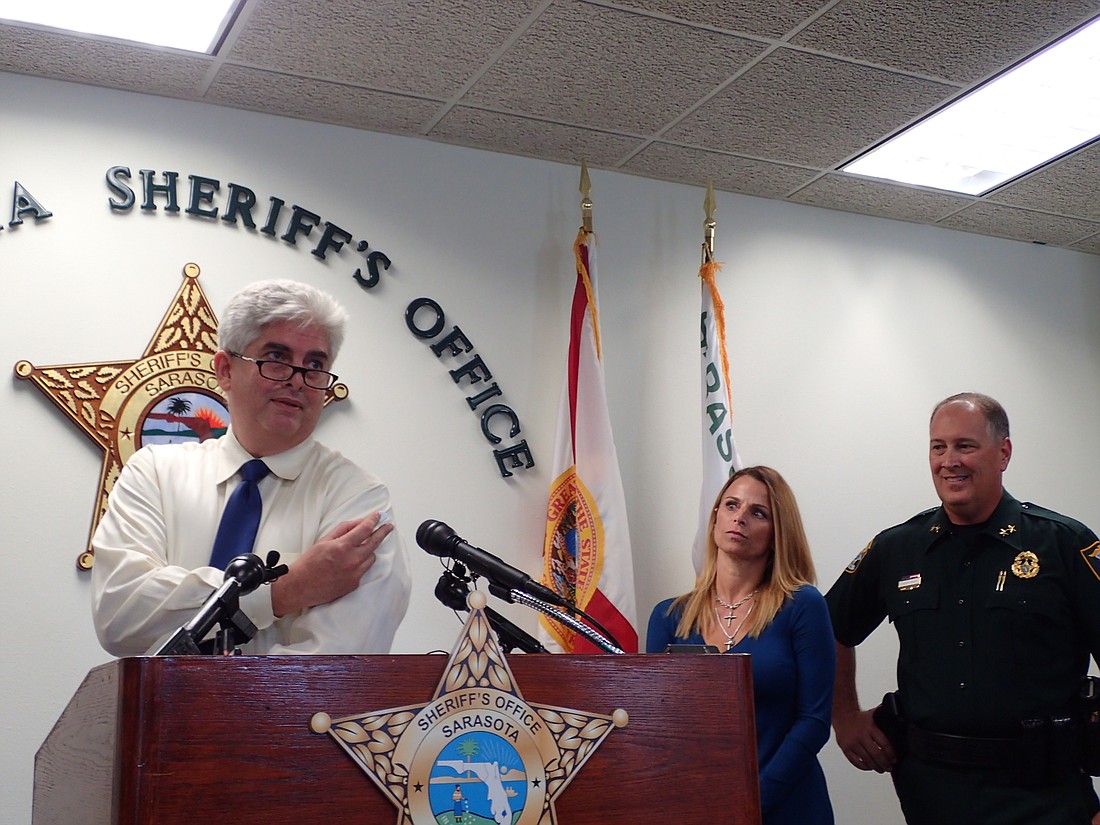- May 3, 2024
-
-
Loading

Loading

The Sarasota County Sheriff’s Office today announced it would train deputies to carry and administer Naloxone to individuals in the throes of an overdose, which would reverse the effects of opioids such heroin almost immediately.
They have received an initial donation of the drug, as well.
Sarasota County deputies are the first in the state to implement the measure, as part of what Sheriff Tom Knight called a multi-pronged approach to law enforcement, which emphasizes protection and service.
State Rep. Dr. Julio Gonzales, and Lisa Brandy, president of Brandi’s Wish Foundation also spoke at the presentation. Gonzales sponsored house bill 751, or the “Emergency Treatment and Recovery Act,” which became law in April 2015 and allows patients, primary caregivers and emergency responders such as deputies to administer the drug. Opioid antagonists like naloxone have been used in emergency rooms for decades to reverse the effects of administered opioids, like those used to put patients under. The auto-injectors that deputies will carry, however, deliver doses automatically and have the potential to be used safely by most people.
The Sheriff's Office received a donation of 800 doses of Evzio from drug manufacturer kaléo. They are worth approximately $280,000.
Knight said they would use the Sheriff’s budget or grants to obtain future supplies of the drug, and that he wasn’t currently focused on cost, but saving lives.
Over the last three months, according to the Sheriff’s Office spokeswoman Wendy Rose, deputies have responded to 55 overdoses, five of which were fatal. Rose said she did not know how many times during that period deputies arrived on scene before Emergency Medical Services with advanced life support systems, which are already equipped to administer naloxone.
Gonzales said there is “very low” risk associated with administering the drug mistakenly, saying it would have no effect on someone without opiates in his or her system unless that person was “one of multiple thousands” allergic to the drug.
But, the effect will be dramatic for overdose victims, as the patient is essentially sent into immediate withdrawal. It acts quickly and wears off quickly, so activating emergency medical procedures is crucial Gonzales said.
Brandy, whose daughter overdosed on prescription opioids in 2011, works through Brandi’s Wish to raise awareness and combat the stigma associated with addiction.
She said Knight is a her hero for being at the forefront of the issue.
“It says a lot about how he feels about his community,” Brandy said.
Rose said they will begin training soon and hope to have deputies carrying them in about a month. Knight said his officers are optimistic about the new capacity to help people.
“They’re human,” he said. “There’s nothing worse than responding to an overdose and being helpless to do anything about it.”